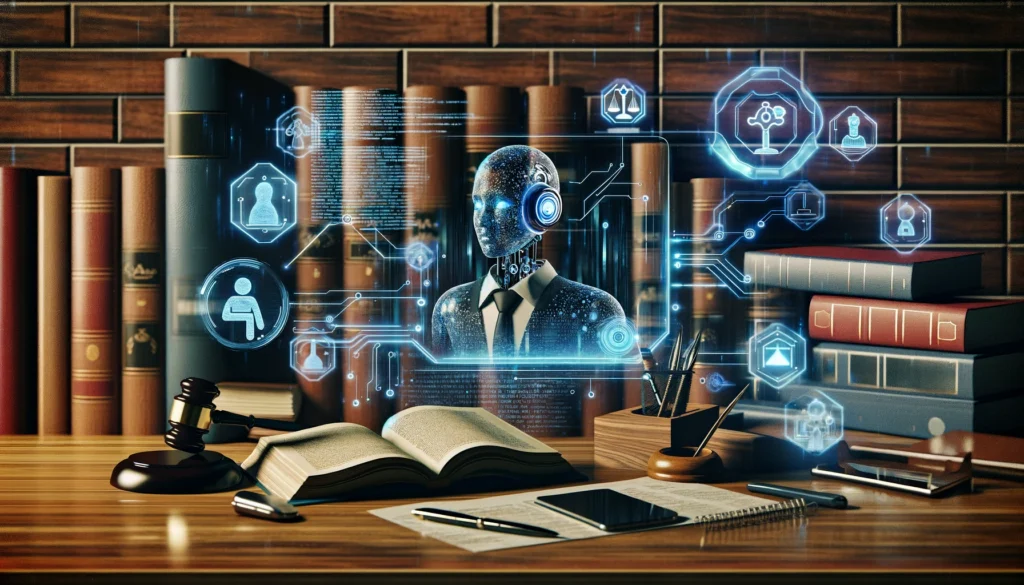
Powers of Attorney: More Than Just a Formality
A Power of Attorney (POA) is more than a simple legal document; it’s a profound act of trust and foresight. It’s the mechanism that allows individuals to empower trusted agents to manage their affairs in the event they become incapacitated or simply need assistance.
Yet, the seemingly straightforward act of granting power can be fraught with complexity. There are various types of POAs, each with different scopes of authority, and state laws impose specific requirements for their creation and execution. A poorly drafted or outdated POA can lead to confusion, disputes, and unintended consequences that undermine the very intentions of the individual granting the power.
This is where the power of AI can step in. ChatGPT, with its ability to generate templates, suggest provisions, and clarify legal language, can be an invaluable asset in streamlining the POA drafting process and ensuring that your clients’ wishes are accurately and effectively documented.
Let’s explore how ChatGPT can become your trusted drafting companion, helping you create precise, comprehensive, and legally sound Powers of Attorney.
ChatGPT: Your Legal Drafting Companion
Drafting a Power of Attorney (POA) isn’t merely filling out a form; it’s about capturing the nuances of a client’s wishes and translating them into precise legal language. This is where ChatGPT, with its extensive legal knowledge and language processing capabilities, steps in as your invaluable drafting companion.
Think of it as a seasoned paralegal with an encyclopedic memory of legal statutes and clauses. ChatGPT can streamline and enhance your POA drafting process in several ways:
- Template Generation: Instead of starting from scratch, ask ChatGPT to generate a POA template tailored to your state’s specific laws and your client’s needs. This provides a solid foundation, saving you precious time and ensuring compliance with local regulations.
- Clause Suggestions: Unsure which provisions to include? Describe your client’s situation and goals, and ChatGPT can suggest relevant clauses that address their specific needs, whether it’s managing finances, making healthcare decisions, or handling real estate transactions.
- Legal Jargon Demystified: Confused by terms like “durable power of attorney” or “springing power”? Ask ChatGPT to provide clear definitions and explanations, ensuring you understand the legal implications and can effectively communicate them to your client.
- Identifying Potential Issues: Worried about ambiguity or inconsistencies? Have ChatGPT review your draft POA and pinpoint potential issues that could lead to misinterpretations or disputes down the line.
Remember:ChatGPT is a tool, not a lawyer. While it can provide valuable assistance, it's crucial to have a licensed attorney review the final document and ensure it aligns with your client's wishes and legal requirements.
Now that you understand the power of ChatGPT as your drafting assistant, let’s explore how to fine-tune your instructions to get the most out of this powerful tool.
Also read:
Prompting for Precision: Crafting Effective POAs with ChatGPT
Now that ChatGPT is on your team, let’s give it the playbook to draft an effective Power of Attorney (POA) that precisely reflects your client’s wishes and complies with legal requirements. Remember, clarity and specificity in your prompts are key to unlocking ChatGPT’s full potential.
Prompt Examples:
- Template Generation:
- Basic Prompt: “Draft a power of attorney.”
- Advanced Prompt: “Draft a durable power of attorney for finances in [state]. The principal is [client’s name], and the agent is [agent’s name]. The POA should become effective immediately and remain in effect even if the principal becomes incapacitated. Include provisions for managing bank accounts, investments, real estate transactions, and paying bills.”
- Clause Suggestions:
- Prompt: “Suggest specific provisions for this POA [provide context of the POA] that address gifting authority, the ability to make digital transactions, and limitations on the agent’s power to change beneficiary designations.”
- Purpose: Tailor the POA to address your client’s unique needs and concerns.
- Customization:
- Prompt: “I have a standard POA template [insert template]. Please modify it to include the following provisions: [list specific provisions, e.g., ability to make gifts up to a certain amount, authority to access online accounts, restrictions on selling specific assets].”
- Purpose: Streamline the drafting process by building upon existing templates and incorporating client-specific instructions.
- Review and Refinement:
- Prompt: “Review this draft POA [insert text] and identify any potential ambiguities, inconsistencies, or areas that could be strengthened. Suggest alternative language or additional clauses to improve clarity and enforceability.”
- Purpose: Ensure the POA is legally sound, unambiguous, and protects the principal’s interests.
Additional Prompts for Fine-Tuning:
- Defining Powers: “Define the specific powers granted to the agent in this healthcare POA, such as the ability to consent to medical treatment, access medical records, and make end-of-life decisions.”
- Limitations and Restrictions: “Draft a clause that limits the agent’s authority to [specific actions, e.g., selling the principal’s primary residence, making gifts exceeding a certain value].”
- Conflict of Interest: “Address potential conflicts of interest that might arise if the agent is also a beneficiary of the principal’s estate.”
- Revocation: “Draft a clause detailing the procedure for revoking this POA, including any notice requirements or other formalities.”
The Iterative Process:
Remember, drafting a POA with ChatGPT is a collaborative process. Start with broad prompts to generate a basic structure, then refine your instructions based on the AI’s output. Ask clarifying questions, provide additional details, and gradually guide ChatGPT toward a polished and personalized document that accurately reflects your client’s wishes.
While ChatGPT can streamline the technical aspects of POA drafting, clear communication with your client is essential. Let’s explore how ChatGPT can help bridge the gap between legal jargon and client understanding.
Also read:
Beyond Drafting: Client Communication and Education
A well-drafted Power of Attorney (POA) is only as good as its implementation. Clear communication with both the client (the principal) and their chosen agent is essential to ensure everyone understands their rights, responsibilities, and the implications of the document.
Here’s where ChatGPT can extend its helping hand beyond the drafting phase:
- Plain Language Explanations: Legal documents can be intimidating. ChatGPT can help you create client-friendly summaries and explanations of the POA’s terms, powers, and limitations. This empowers clients to make informed decisions and feel confident in their choice of agent.
- Generating FAQs: Anticipate common questions clients or agents might have and use ChatGPT to draft clear and concise answers. Include these FAQs in a supplemental document or on your firm’s website to provide easy access to information.
- Instructions for Agents: Don’t leave your client’s agent in the dark. ChatGPT can help you draft detailed instructions outlining the agent’s responsibilities, decision-making authority, and any limitations or restrictions imposed by the POA.
- Tailored Communication: Each client and situation is unique. Use ChatGPT to tailor communication materials to the specific needs and concerns of your clients, addressing their individual questions and ensuring they fully understand the implications of the POA.
The Power of Plain Language:By simplifying complex legal concepts and using clear, everyday language, you can foster greater trust and understanding between yourself, your clients, and their agents. Remember, the goal of a POA is to empower individuals to manage their affairs, and effective communication is key to achieving that goal.
While ChatGPT offers invaluable assistance in drafting and explaining POAs, the role of the attorney remains paramount. Let’s delve into the ethical considerations and professional responsibilities involved in this important legal process.
Also read:
Ethical Considerations and the Role of the Attorney
While ChatGPT can revolutionize the drafting of Powers of Attorney (POAs), it’s essential to remember that it’s a tool, not a substitute for the guidance and expertise of a licensed attorney. The legal and ethical responsibilities surrounding POAs remain firmly with the lawyer.
The Attorney’s Role:
- Legal Counsel: Attorneys must ensure that the POA aligns with state law and the client’s specific needs. They should review and explain the document to the client, ensuring they understand its implications and potential risks.
- Ethical Guidance: Attorneys must adhere to ethical guidelines, ensuring that the POA is in the client’s best interests and that the agent is trustworthy and capable. They should advise clients on potential conflicts of interest or any concerns related to the delegation of authority.
- Execution and Witnessing: Attorneys can ensure the proper execution of the POA, including witnessing signatures and notarization where required, to ensure its validity and enforceability.
Ethical Considerations:
- Client Autonomy: While ChatGPT can streamline the drafting process, the client should remain actively involved in the decision-making process. The attorney should ensure the client understands the choices available and feels empowered to make informed decisions.
- Confidentiality: Attorneys must protect client confidentiality throughout the POA drafting process, being mindful of the sensitive information involved.
- Technology Competence: Attorneys have an ethical obligation to stay informed about technological advancements and to use them competently and responsibly to best serve their clients.
The Power of Partnership:
By embracing ChatGPT as a valuable tool while maintaining their ethical obligations, attorneys can enhance their efficiency, deliver higher quality service to clients, and empower individuals to plan for their future with confidence and peace of mind.


